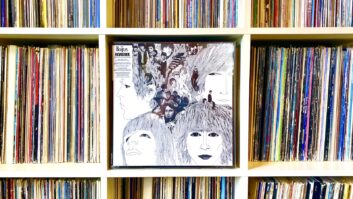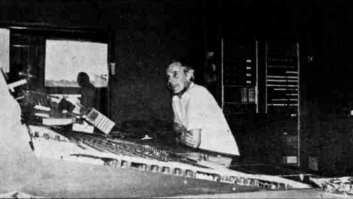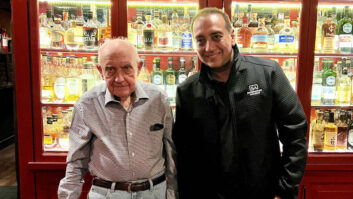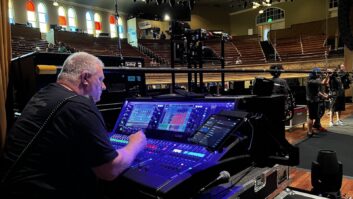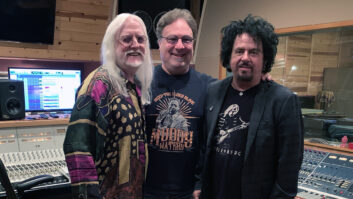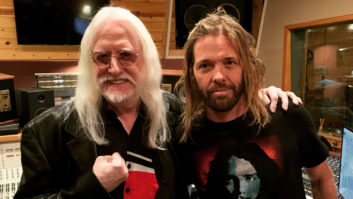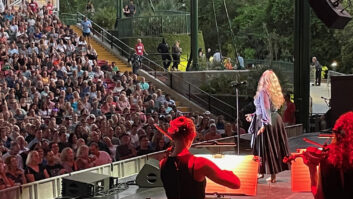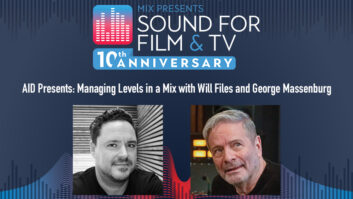
Sad news to learn of George Duke’s untimely death. He was such a warm-hearted guy, so talented, and much loved and trusted by so many musicians. I photographed and spoke with George a number of times, with such talents as Dianne Reeves and Smokey Robinson, with great bands, and he was always a positive, uplifting soul and the musicians had such respect for his musical integrity. If George was in charge, everyone could relax and concentrate on the music.
Keyboard ace, fusion explorer, composer and tasteful producer, George Duke was born in 1946, near San Francisco, California. While still in his teens, he was writing and performing professionally, as well as backing such jazz greats as Dizzy Gillespie in the Bay Area.
By 1970, he was working with Frank Zappa through some of the Mothers’ most productive incarnations, also working with Cannonball Adderley, and over the ensuing decades, exploring fusion with Stanley Clarke, Billy Cobham and Jean-Luc Ponty. The acclaimed Clarke-Duke Project was launched in 1981, and throughout the years, he produced a wide variety of artists and released a fine assortment of albums showcasing his love of Blues, Brazil and Electronics.
In the mid-Seventies, pioneer Duke built a project recording studio, one of the earliest to house a truly pro-but-personal workspace. Following is an excerpt from my 1996 Mix Magazine interview.
Can we talk about the evolution of synthesizers from your perspective?
Well, in the beginning, I rebelled; I didn’t want to play any electronic gear, because it was like going back to school. I started with the Fender Rhodes, the one with that grey top. It “plunked,” but it had this vibrato that was interesting. I got into electronic music that way.
Eventually, Frank Zappa told me, “You should play synthesizers.” I said, “What’s that? That thing with all those knobs? No, no, I’m not interested.” I said, “Look, I don’t even know how to turn it on—not interested.” So Frank says, “I’ll buy you one. We’ll put it on your Fender Rhodes. If you like it, fine.”
I just loved the fact that you could bend notes. I had never been able to play piano and bend a note—and that was interesting to me. I wanted to play the Blues on that synthesizer. I found that I could play it like a guitar, like a Blues guitar—or even like a flute.
So you fit into the Zappa camp nicely with your new synthesizer?
Oh yeah, and Frank loved it. But the hardest thing about working with Frank was that we had no presets. When he would assign you different timbres and things, between me and Ian Underwood, it was very tough to make those patch changes during the space of time he allowed you to do it. And he would know if it was wrong.
He was a strict disciplinarian. If it was wrong, even in performance, he would make you do it again. I had it happen once; he stopped the band and said, “Stop. George made a mistake.” I went, “Oh, Frank…” He said, “Do it again.” It was embarrassing, and the crowd all laughed, but Frank was serious. I screwed up once and he let everybody know it I said to myself I would never let that happen to me again.
Could you point out a few things that you learned from Frank?
I learned quite a bit from Frank. He was an incredible arranger, composer, and he knew stuff about the studio that I never realized musicians even cared about.
And I learned a lot from the way he rehearsed a band and what he required of his musicians. There was a world of Frank that was very intuitive and geniuslike. Musically, he was so broad—he was the one that really broadened my musical horizons, and that’s why I’m so crazy now.
The reason I do so many different things musically is because of him. He was into rock, and he was into jazz. He would say he wasn’t into jazz, but he lied. We played a lot of jazz; he just didn’t call it that. And then there was the contemporary orchestral music—we used to do all that kind of stuff. He challenged the musicians.
